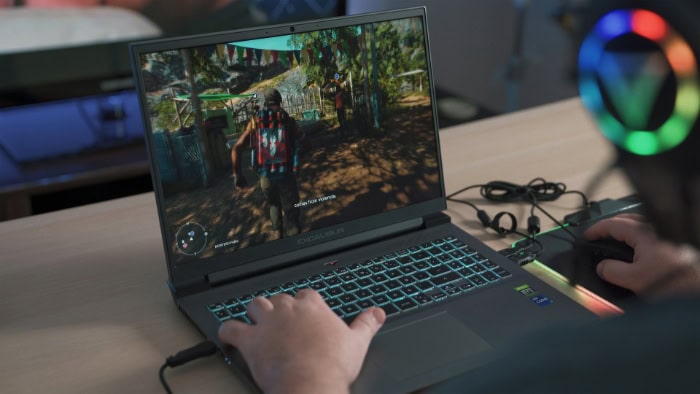Why Parents Hate Video Games: Myths vs. Reality

Video games have become a contentious topic in many households, often sparking heated debates between parents and children. As gaming continues to evolve and gain popularity, the rift between generations seems to widen.
Parents frequently express concerns about the impact of video games on their children's well-being, while young gamers passionately defend their hobby. This divide raises important questions about the role of gaming in modern life and how families can navigate this complex issue.
By examining both sides of the argument, we can gain valuable insights into the fears that drive parental opposition and the benefits that attract young players.
The Root of Parental Worries
Parents often express deep-seated concerns about their children's involvement with video games. These worries stem from various factors, ranging from academic performance to social development.
Academic Priorities and Time Management
Many parents worry that video games consume too much of their children's time, potentially interfering with academic responsibilities. The allure of gaming can be strong, leading some students to prioritize play over homework or study time.
Parents fear that this shift in focus might result in declining grades and missed educational opportunities.
Moreover, the immersive nature of many games can make it challenging for children to manage their time effectively. Hours can slip by unnoticed, leaving little room for other important activities like reading, sports, or family interactions.
This perceived imbalance often fuels parental anxiety about their children's future success and well-rounded development.
Content Concerns and Age-Appropriate Media
The content of video games is another significant source of parental apprehension. Many games feature violence, mature themes, or language that parents deem inappropriate for their children.
The interactive nature of gaming can make these elements feel more impactful than passive media like movies or television.
Parents worry about the potential influence of such content on their children's behavior, values, and worldview. They may fear that exposure to violent or mature themes could desensitize their children or lead to aggressive tendencies.
Additionally, online multiplayer games can expose young players to unpredictable interactions with strangers, raising concerns about online safety and cyberbullying.
The Specter of Gaming Addiction
The potential for gaming addiction or obsessive behavior is a growing concern among parents. Stories of individuals neglecting personal hygiene, skipping meals, or sacrificing sleep to play games have contributed to this fear.
Parents worry that their children might develop unhealthy habits or lose interest in other aspects of life due to an overwhelming focus on gaming.
The World Health Organization's recognition of “gaming disorder” as a mental health condition has further legitimized these concerns. Parents may struggle to distinguish between passionate hobby engagement and problematic behavior, leading to heightened anxiety about their children's gaming habits.
Social Skills and Real-World Interactions
Many parents express concern about the impact of gaming on their children's social skills and real-world interactions. There's a fear that excessive time spent in virtual worlds might lead to difficulties in face-to-face communication or a lack of interest in traditional social activities.
Parents worry that their children might miss out on important social experiences or struggle to form meaningful relationships outside of gaming communities. The contrast between the structured, often predictable interactions in games and the complexities of real-world social situations can seem stark, leading to parental anxiety about their children's social development.
Debunking Gaming Myths

While parental concerns about video games often stem from genuine care, many of these worries are rooted in misunderstandings and misconceptions. The rapid evolution of gaming technology and culture has created a significant knowledge gap between generations.
The Evolving Landscape of Modern Gaming
Many parents base their opinions on outdated experiences or limited exposure to video games. The gaming industry has undergone dramatic transformations in recent years, with advancements in graphics, storytelling, and interactive capabilities.
Games now offer complex narratives, educational content, and social experiences that many parents might not be aware of.
For instance, modern educational games can supplement classroom learning in subjects like history, science, and mathematics. Simulation games can teach resource management and problem-solving skills.
Many parents, unfamiliar with these developments, might still view gaming solely as a mindless pastime, missing out on its potential benefits.
Media Portrayal and Its Influence
The media's tendency to focus on negative aspects of gaming has significantly shaped public perception. News stories often highlight extreme cases of addiction or violent behavior allegedly linked to video games, while overlooking positive aspects or balanced perspectives.
This skewed coverage can lead parents to form exaggerated fears about gaming's impact on their children. It's crucial to recognize that these sensationalized stories represent outliers rather than the norm.
A more balanced media diet, including positive gaming stories and scientific research, could help parents form a more accurate view of gaming's role in modern life.
Challenging Outdated Gamer Stereotypes
Many parents still hold onto outdated stereotypes of gamers as socially awkward, unproductive individuals. However, the demographics of gamers have diversified significantly.
Gaming now spans all age groups, genders, and professions, including successful entrepreneurs, athletes, and creatives.
Moreover, the rise of esports has transformed competitive gaming into a legitimate career path, with professional players earning substantial incomes and gaining celebrity status. Parents who cling to old stereotypes might struggle to see the potential benefits and opportunities that gaming can offer in today's digital economy.
Decoding Gaming Culture and Communication
Parents often misinterpret in-game behavior and language, leading to unnecessary concerns. The competitive nature of many games can result in intense expressions or seemingly aggressive language that, within the gaming context, are often harmless banter or strategic communication.
For example, terms like “pwned” or “GG” might seem like nonsensical or rude language to uninitiated parents, but they're simply part of gaming culture's unique vocabulary. Similarly, the focus and intensity a player exhibits during a game might be misinterpreted as addiction or obsession, when it's more akin to the concentration an athlete shows during a match.
Understanding these cultural nuances can help parents differentiate between normal gaming behavior and genuine causes for concern. It can also open up new avenues for communication and shared experiences between parents and their gaming children.
The Hidden Benefits of Gaming
While concerns about video games often dominate discussions, it's crucial to recognize the numerous positive aspects that gaming can offer. These benefits, frequently overlooked in debates about gaming's impact, can contribute significantly to a child's development and skill set.
Sharpening Minds Through Play
Video games can provide substantial cognitive benefits and enhance problem-solving skills. Many games require players to think critically, make quick decisions, and develop strategies to overcome challenges.
This mental engagement can improve various cognitive functions, including spatial awareness, memory, and attention to detail.
For example, puzzle games often require players to think creatively and approach problems from multiple angles. Strategy games challenge players to manage resources, plan ahead, and adapt to changing circumstances.
Action games can improve hand-eye coordination and reaction times. These skills, honed through gameplay, can translate into real-world applications, potentially benefiting academic performance and future career prospects.
Building Bonds in Virtual Worlds
Contrary to the stereotype of the isolated gamer, many modern video games offer rich opportunities for social interaction and teamwork. Online multiplayer games, in particular, can foster collaboration, communication, and leadership skills as players work together towards common goals.
These games often require players to coordinate strategies, share resources, and support each other in virtual environments. Through these interactions, players can develop valuable social skills, learn to work effectively in teams, and even form lasting friendships with people from diverse backgrounds.
For some individuals, especially those who might struggle with face-to-face social interactions, gaming communities can provide a supportive environment to practice and develop social skills.
Learning Through Interactive Experiences
The educational potential of video games is vast and often underappreciated. Many games incorporate historical, scientific, or cultural elements that can spark curiosity and encourage further learning.
Educational games designed specifically for learning purposes can make subjects like mathematics, language, and science more engaging and accessible.
Moreover, even games not explicitly designed for education can offer learning opportunities. Historical strategy games can pique interest in past civilizations and events.
Simulation games can teach principles of economics, city planning, or ecosystem management. Role-playing games often involve complex narratives that can improve reading comprehension and storytelling skills.
Navigating the Digital Frontier
In an increasingly digital world, the skills developed through gaming can be invaluable. Playing video games often involves interacting with complex user interfaces, troubleshooting technical issues, and adapting to new technologies.
These experiences can significantly enhance digital literacy and technological proficiency.
Gamers often become adept at using computers, understanding software interfaces, and quickly learning new digital tools. These skills are increasingly important in many professional fields and can give young people a head start in technology-related careers.
Additionally, some games introduce basic coding concepts or even allow players to create their own content, fostering creativity and potentially sparking interest in fields like game design or software development.
Balancing Gaming and Well-being

While video games can offer numerous benefits, it's essential to consider their potential impact on physical and mental health. By examining these aspects, we can develop strategies to maximize the positive elements of gaming while minimizing potential risks.
Ergonomics and Physical Health
Extended gaming sessions can have physical health implications, particularly if proper ergonomics are not considered. Prolonged sitting, repetitive motions, and poor posture can lead to issues such as back pain, eye strain, and repetitive stress injuries.
To mitigate these risks, gamers should set up their gaming area with ergonomics in mind. This includes using a chair that provides proper back support, positioning the screen at eye level, and maintaining good posture while playing.
Regular breaks to stretch and move around are also crucial. Some games, particularly those on motion-sensing consoles, can even promote physical activity and improve fitness.
Gaming and Sleep Patterns
The impact of gaming on sleep patterns is a significant concern for many parents. The engaging nature of video games can make it tempting for players to extend their gaming sessions late into the night, potentially disrupting their circadian rhythms.
The blue light emitted by screens can suppress melatonin production, making it harder to fall asleep after gaming. Additionally, the stimulating nature of many games can leave players feeling alert and energized, further complicating the transition to sleep.
To address these issues, it's important to establish clear boundaries around gaming time, particularly in the hours leading up to bedtime. Using blue light filters on screens and setting a consistent sleep schedule can also help maintain healthy sleep patterns.
Emotional Regulation and Stress Management
Video games can play a complex role in emotional regulation and stress management. For many players, gaming serves as a form of escapism and stress relief, providing a way to unwind and temporarily disconnect from real-world pressures.
Certain games can evoke a wide range of emotions, from excitement and joy to frustration and disappointment. This emotional engagement can be a double-edged sword.
While it can provide catharsis and help players process emotions in a safe environment, it can also lead to mood swings or heightened stress levels, particularly in competitive gaming scenarios.
Learning to manage these emotions effectively is an important skill for gamers to develop. Parents can help by encouraging open discussions about gaming experiences and emotions, and by modeling healthy stress management techniques.
Debunking the Gaming-Aggression Link
The relationship between gaming and aggression has been a topic of heated debate for years. While some argue that violent video games can increase aggressive thoughts or behaviors, the evidence for this claim is mixed and often misinterpreted.
It's important to note that millions of people play video games without exhibiting increased aggression. Factors such as an individual's personality, home environment, and overall media diet likely play a more significant role in determining aggressive tendencies than gaming alone.
However, parents should still be mindful of the content of the games their children play. Age-appropriate game selection and open discussions about the distinction between in-game violence and real-world behavior can help mitigate any potential negative effects.
Cultivating a Positive Gaming Environment
Creating a healthy gaming environment requires a thoughtful and balanced approach. By implementing effective strategies, parents and children can work together to ensure that gaming remains an enjoyable and beneficial activity without negatively impacting other aspects of life.
Establishing Reasonable Play Limits
One of the most effective ways to promote healthy gaming habits is by setting and enforcing reasonable time limits. This approach helps prevent excessive gaming and ensures that other important activities, such as homework, physical exercise, and family time, are not neglected.
Time limits should be tailored to the individual child's needs and family circumstances. For example, gaming might be limited to a certain number of hours per day or week, or restricted to specific times (e.g., after homework is completed or on weekends).
It's important that these limits are clearly communicated and consistently enforced.
Parents can use various tools to help manage gaming time, such as built-in console timers or parental control apps. However, it's equally important to teach children self-regulation skills, encouraging them to monitor and manage their own gaming time as they grow older.
Selecting Appropriate Content
Choosing age-appropriate games is crucial for ensuring a positive gaming experience. Game ratings, such as those provided by the Entertainment Software Rating Board (ESRB), offer valuable guidance on content suitability for different age groups.
Parents should familiarize themselves with these rating systems and use them as a starting point when selecting games for their children. However, ratings should not be the only consideration.
It's also important to research game content, read reviews, and even play games alongside children to fully understand their themes and gameplay.
Additionally, parents should be aware of online interactions in multiplayer games. Many games allow players to communicate with others, which can expose children to inappropriate language or behavior.
Utilizing parental controls and discussing online safety can help mitigate these risks.
Striking a Balance with Other Pursuits
While gaming can be a rewarding hobby, it's essential to maintain a balance with other activities and interests. Encouraging a diverse range of pursuits helps children develop a well-rounded set of skills and experiences.
Parents can help by promoting alternative activities such as sports, reading, creative arts, or outdoor exploration. It's important to present these options not as competitors to gaming, but as complementary activities that offer different types of enjoyment and benefits.
Creating a schedule that allocates time for various activities can be helpful. This approach teaches children time management skills and helps them appreciate the value of diverse experiences.
It's also beneficial to identify and nurture interests that may have been sparked by gaming, such as storytelling, history, or technology.
Promoting Open Dialogue
Fostering open communication between parents and children about gaming is crucial for maintaining a healthy gaming environment. Regular, non-judgmental conversations about gaming experiences can help parents stay informed and allow children to feel heard and understood.
These discussions can cover various aspects of gaming, such as favorite games, challenges faced, achievements, and any concerns or questions. Parents should strive to show genuine interest and ask thoughtful questions, even if they're not gamers themselves.
Open communication also provides opportunities to address any issues that may arise, such as exposure to inappropriate content or problematic online interactions. By maintaining a supportive and understanding attitude, parents can create an environment where children feel comfortable discussing both positive and negative aspects of their gaming experiences.
Furthermore, these conversations can be a gateway to broader discussions about technology use, media literacy, and digital citizenship.
Conclusion
Video games continue to spark debates between parents and children. This article has explored parental concerns, common misconceptions, and the potential benefits of gaming.
By acknowledging both the risks and rewards, families can approach gaming with a balanced perspective. Implementing healthy gaming habits, such as setting time limits and choosing age-appropriate content, can maximize the positive aspects while minimizing potential drawbacks.
Open communication between parents and children about gaming experiences fosters understanding and trust. As gaming evolves, bridging the knowledge gap between generations becomes essential.
With informed guidance and mutual respect, video games can serve as a source of entertainment, learning, and shared experiences, contributing positively to family life in the digital age.


